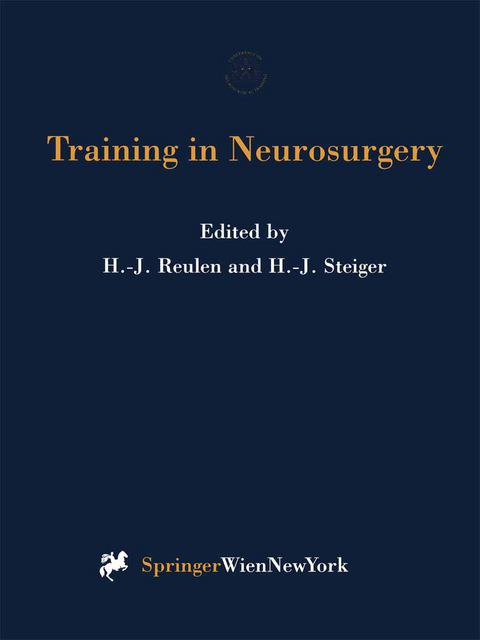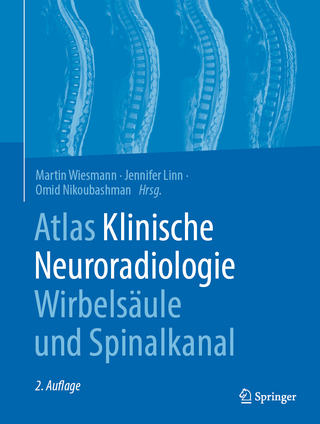
Training in Neurosurgery
Springer Wien (Verlag)
978-3-7091-7419-7 (ISBN)
National Mechanisms for the Selection of Neurosurgical Trainees.- Matching Program for Appointment to Residency Training in Neurological Surgery in United States.- National Mechanisms for the Selection of Trainees. Procedure in Great Britain.- Criteria to Find Qualified Candidates.- Leadership Qualities in Prominent Neurosurgeons.- Criteria to Find Qualified Candidates - Professional Personnel Recruitment Methods Adapted to Neurosurgery.- Criteria and Procedures in the Automotive Industry.- Selection of Air Force Officers - Profiles, Criteria, Testing.- Can We Define or Measure Manual Skills in Surgical Training?.- How Many Residents Shall We Train?.- How many Residents Should we Train? The USA Experience.- How many Residents Shall we Train? The Netherlands Experience.- How Many Higher Neurosurgical Trainees Shall We Train in the British Isles?.- How Many Neurosurgeons Do We Want to Educate in Europe Annually? The Danish Proposal.- How Many Residents Shall We Train? The Iberian Experience.- Neurosurgical Manpower in France.- How Many Residents Shall We Train - The Situation In Germany.- How Many Neurosurgeons Should We Train? The Japanese Experience.- and Structure of a Training Program.- Neurosurgical Training at Present and in the Next Century.- The UEMS Model - Proposals for Classification and Training Durations of Specialties Registered in Doctors' Directives.- and Structure of a Training Program. The Japanese Proposal.- Neurosurgical Training in Austria - Present Status and Aspects for the Future.- A Resident's Experience and Suggestion.- Control and Structure of a Training Program. The View of a Non-academic Hospital.- Assessment of Training Progress and Examinations.- Assessment of Training Progress and Examinations.- Experience with the EANSExaminations.- Experience with the United Kingdom Examinations in Neurosurgery.- Periodic Evaluation of Training Progress and Teaching.- What Consequences Should Result from Failure to Meet Internal Standards?.- Research and Research Training.- When Should Residents be Exposed to Research?.- Role of Surgical Research in the Training of Neurosurgeons.- Research in Neurosurgical Training: Clinical Reviews and Trials.- From the Scientific Idea to its Realisation - Principles and Strategies in Neurosurgery.- Fellowship and Subspeciality Training.- Subspeciality Training in Neurosurgery.- Neurosurgical Spine Fellowships: The Phoenix Model.- A Model Fellowship in Pediatric Neurosurgery.- Post Residency Subspecialty Training in Neurosurgery - The Impact of Subspecialty Training on Organized Neurosurgery and Resident Training - Benefits, Responsibilities and Liabilities.- Neurosurgical Training of the Future.- In The Realm of Ideas: the Advent of Advanced Surgery of the Human Cerebrum and Neurosurgical Education.- The Development of Training Systems in General Surgery.- Interactive Multimedia Software for Training and Education in Neurosurgery.- Index of Key words.
| Erscheint lt. Verlag | 19.9.2011 |
|---|---|
| Reihe/Serie | Acta Neurochirurgica Supplement |
| Zusatzinfo | VIII, 159 p. |
| Verlagsort | Vienna |
| Sprache | englisch |
| Maße | 210 x 280 mm |
| Gewicht | 444 g |
| Themenwelt | Medizinische Fachgebiete ► Chirurgie ► Neurochirurgie |
| Schlagworte | Information • neurosurgery • quality control • Surgery |
| ISBN-10 | 3-7091-7419-8 / 3709174198 |
| ISBN-13 | 978-3-7091-7419-7 / 9783709174197 |
| Zustand | Neuware |
| Haben Sie eine Frage zum Produkt? |
aus dem Bereich


